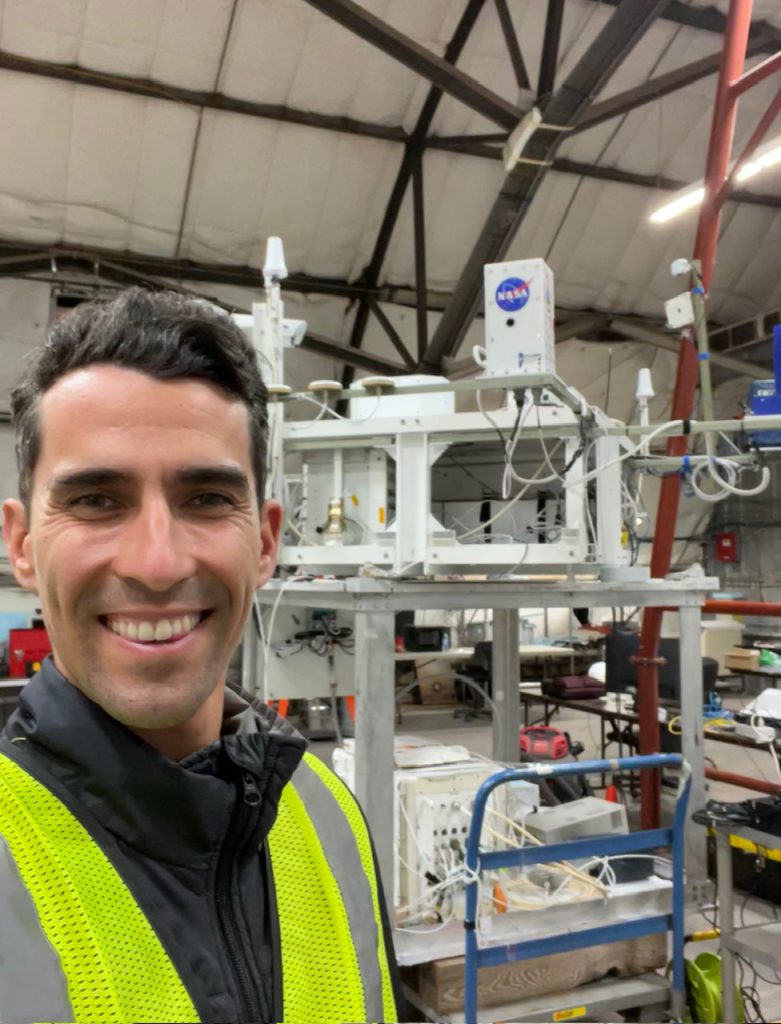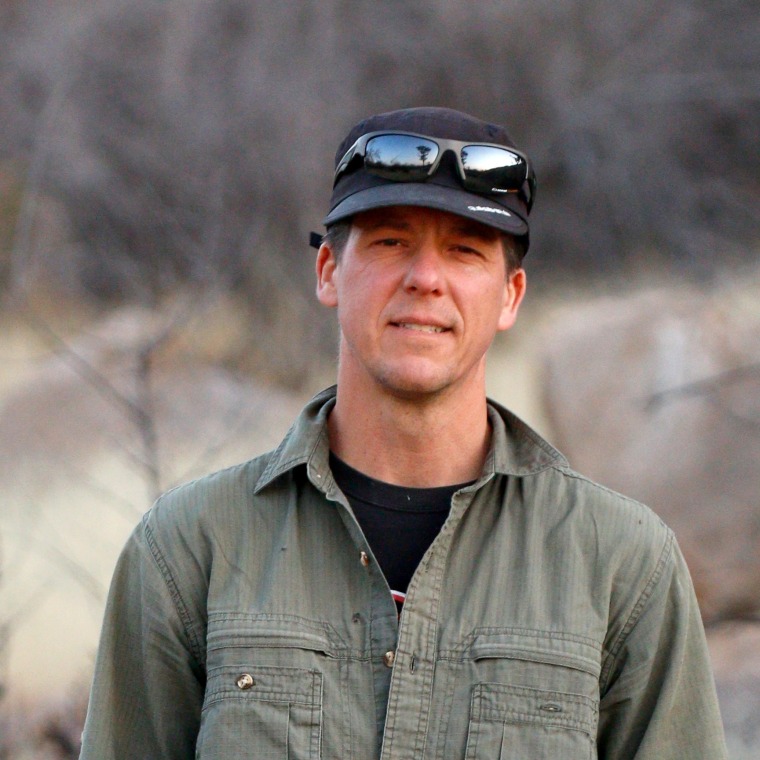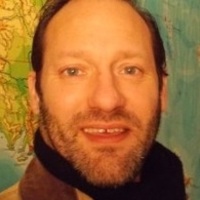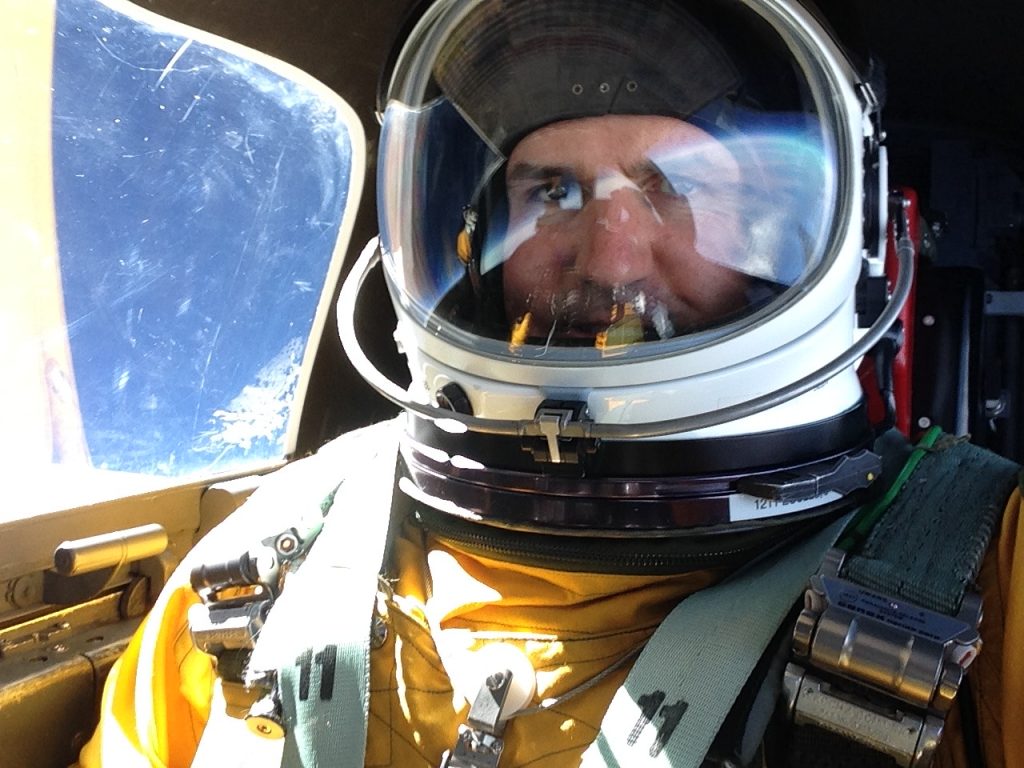Trent Tresch

Trent Tresch works in bridging the gap between traditional aerospace and new-space innovation. As the Founding Director of the University of Arizona’s Center for Human Space Exploration he works with his colleagues at the Biosphere 2 to teach spacesuit operations and spacecraft egress to professionals of all backgrounds while also designing and flight-testing space exploration technologies.
Kai Staats, M.S

Kai is a veteran developer of platforms for research and science education. He was co-founder and CEO of the world-renowned Yellow Dog Linux operating system for ten years. The YDL platform was used extensively in Department of Energy, NASA, and University research across a full spectrum of sciences. Kai designed and developed iConji, an icon-based language for international communication; wrote the machine learning algorithm Karoo GP which has been used at LIGO for classification of glitches and supernovae; and was principal designer of the Mt. Meru Astronomical Observatory in Tanzania, the first of its kind in East Africa. At Arizona State University Kai led the development of SIMOC, a research-grade computer simulation and educational interface hosted by National Geographic that enables citizen scientists to explore the complexity of a human habitat on Mars. Now, Kai and his team are constructing SAM, a hi-fidelity, hermetically sealed Mars habitat analog with greenhouse, living quarters, airlock, pressure suits, and half acre Mars yard located at the iconic University of Arizona Biosphere 2.
Cameron M. Smith, PhD.

Dr. Smith is a cofounder of Pacific Spaceflight, a private think tank developing pressurized garments for human space exploration. A prehistorian at Portland State University’s Department of Anthropology, he has published widely on the human past (including two books on evolution), but also on the anthropology of the human future in space settlement, most recently in Scientific American magazine and in his book Emigrating Beyond Earth: Human Adaptation and Space Colonization (Springer 2012) and Principles of Space Anthropology: Establishing a Science of Human Space Settlement (Springer, Fall 2019). He aims to advance human space exploration by developing new technologies and techniques. Dr. Smith has spoken for NASA managers and has consulted in the private space industry on life-support and space suit matters. In Winter 2014 he spoke at Canada’s Perimeter Institute for Theoretical Physics and TEDX Brussels, and in 2015 he presented space suit technology as a speaker at both TEDX Portland and the Oregon Institute of Technology; the technology was also demonstrated in 2018 at Arizona State University’s School of Earth and Space Exploration. Dr. Smith’s research on the genetics of space settlement and constructing an evolutionary, adaptive paradigm for space settlement have been published in the scholarly journal Acta Astronautica; he has also published innovative space technology in the Journal of the British Interplanetary Society. A diver, paraglider pilot and hot air balloon pilot, Dr. Smith is applying his many years of sailing, mountaineering and solo Arctic icecap expeditions to devising ways to explore the surface of Mars. The author of nearly ten books–including An Atlas of Human Prehistory (Cognella 2016) and The Fact of Evolution (Penguin Random House 2011)—he is currently completing Principles of Space Anthropology: Establishing a Science of Human Space Settlement (Springer Fall 2019), a graduate-level technical foundation of a science of human space settlement. Dr. Smith’s website is cameronmsmith.com, where links may be found to his many interviews and media profiles.
Brian T. Musselman, Ph.D.

Retired U.S. Air Force Colonel with over 30 years of leadership in aerospace safety, physiology, and human factors. He has guided multidisciplinary teams across military, government, and commercial sectors, specializing in the development and integration of flight-critical systems that prioritize human safety and operational effectiveness.
A pivotal moment in his career was commanding the 9th Physiological Support Squadron at Beale AFB, where he directed global U-2S high-altitude life support operations and maintenance across four geographically separated units. Under his leadership, the squadron provided physiological training, resolved critical life support anomalies, and supported strategic reconnaissance missions. His deep experience in aerospace physiology, life support systems, and accident investigation informed subsequent roles as Vice Wing Commander of the Air Force’s largest medical wing and Deputy Chief of Human Factors at the Air Force Safety Center.
Dr. Musselman currently serves as the Manager of a Human Systems Engineering Department for spaceflight hardware and a graduate-level, adjunct faculty member. He holds a Ph.D. in Aviation Safety and Human Factors and is a Certified Aerospace Physiologist and Certified Safety Professional. He is a Fellow of the Royal Aeronautical Society, Aerospace Medical Association, and Aerospace Human Factors Association.